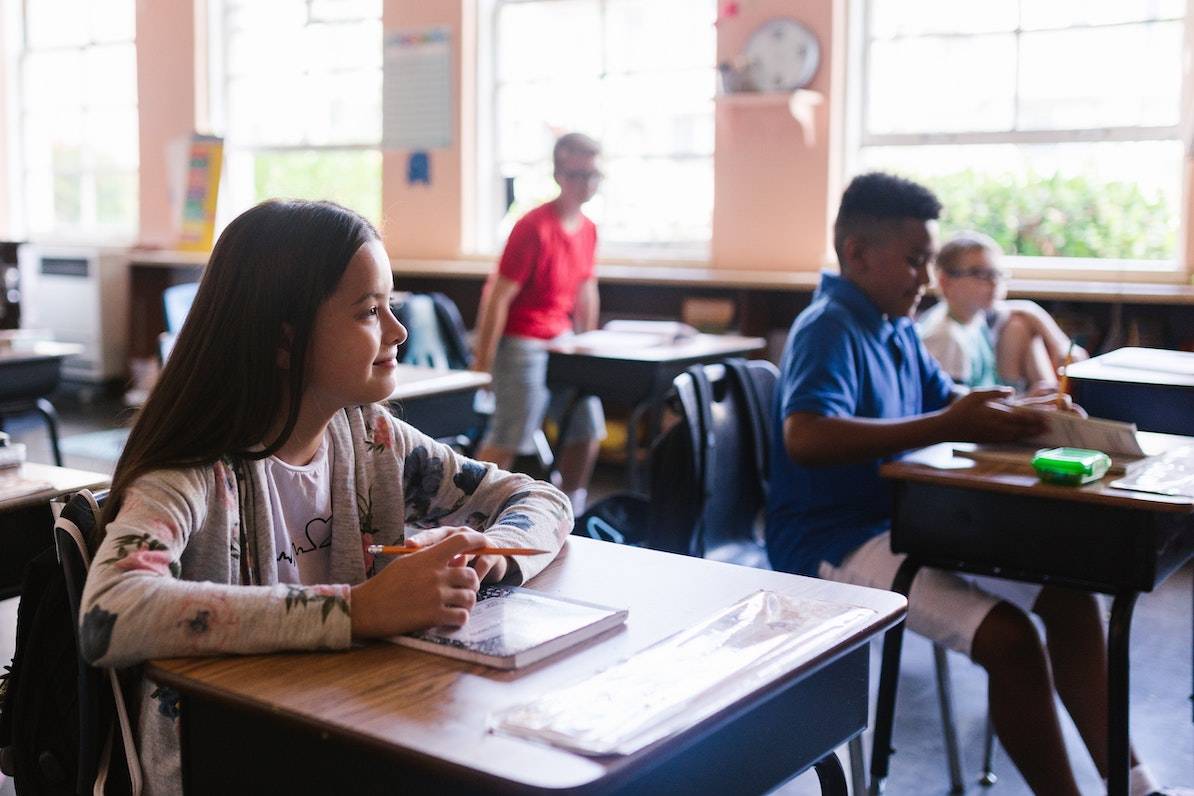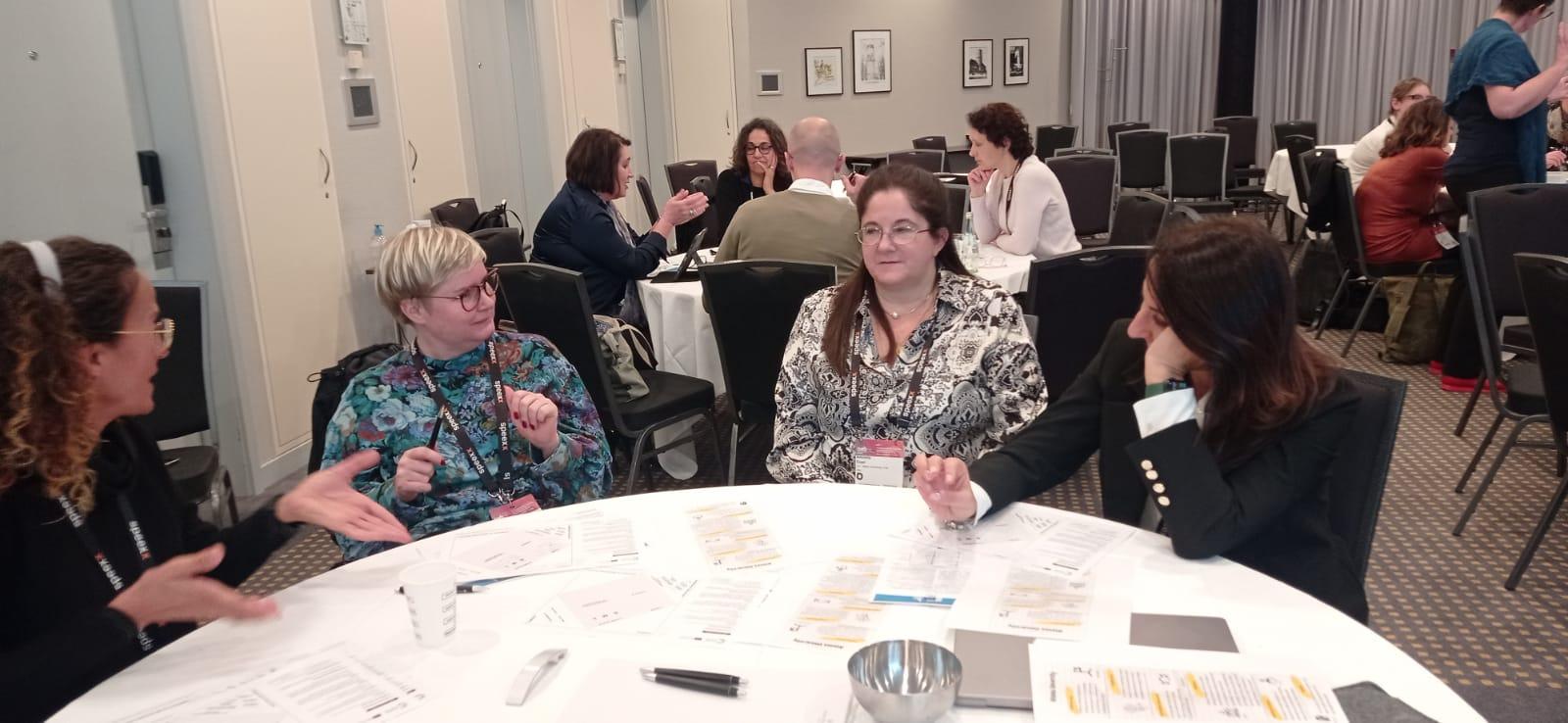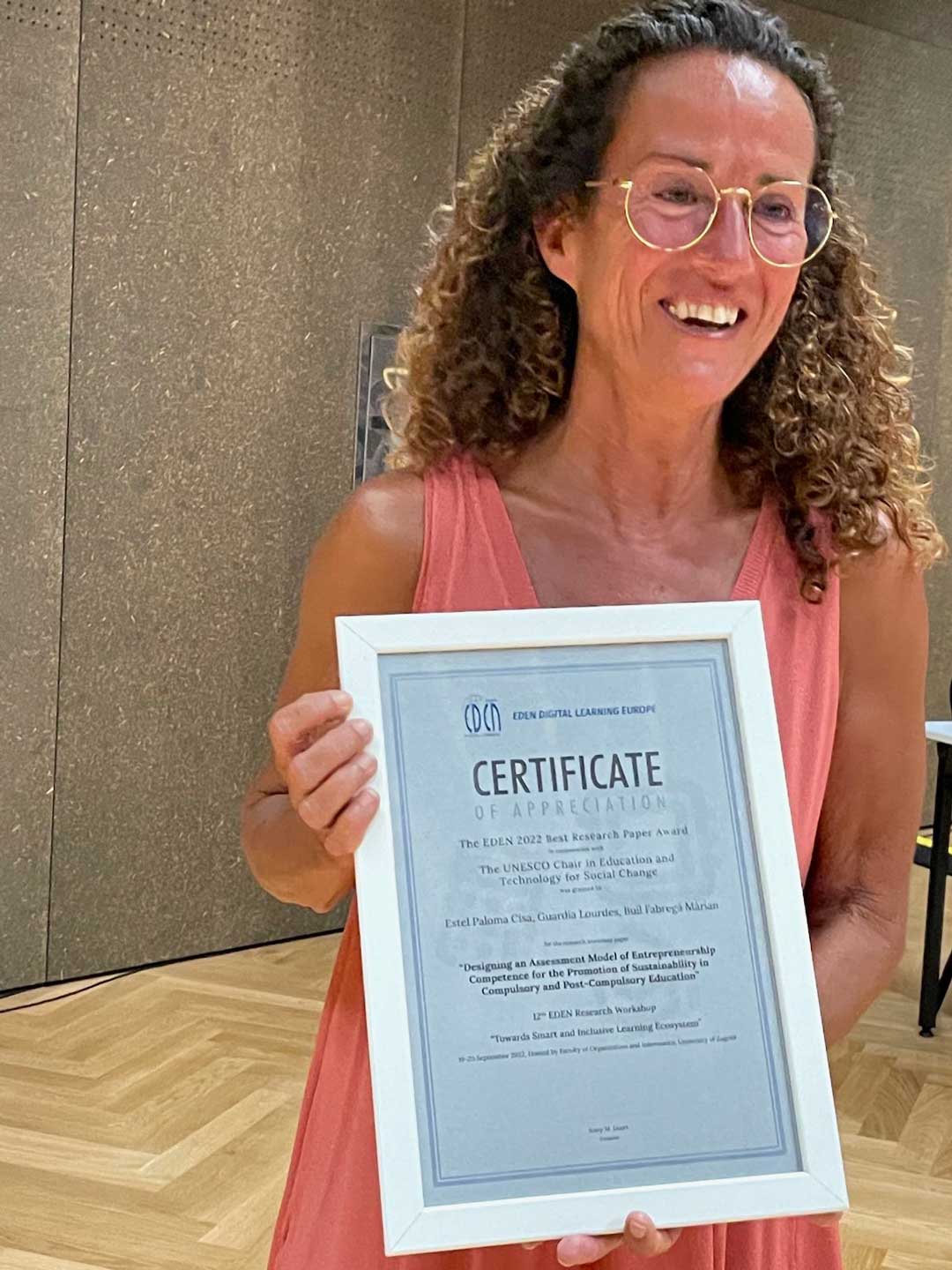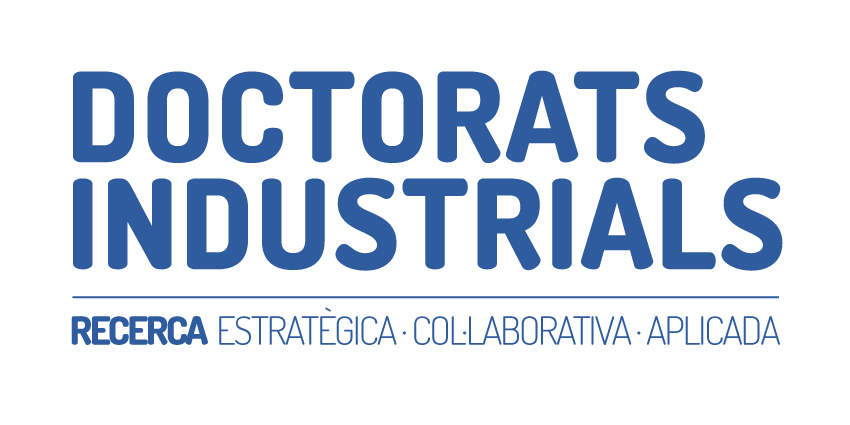
Assessing students' knowledge based on competencies is one of the great challenges of education, which requires all students to be able to cultivate both transversal and basic competences. This is how Estel Paloma, industrial doctoral student of an applied research project in the educational field with the Pia Santa Anna School in Mataró, tells us. Estel has recently been awarded the EDEN Best Research Paper Award at the 12th edition of EDEN's Research Workshop for the article "Designing an Assessment Model of Entrepreneurship Competence for the Promotion of Sustainability in Compulsory and Post-Compulsory Education", presented jointly with the co-supervisors of her thesis Lourdes Guàrdia (professor at the UOC's Faculty of Psychology and Education Sciences) and Marian Buil (Tecnocampus-UPF). The first results of the research carried out by Paloma are already beginning to give clues as to where to go to generate a model that evaluates entrepreneurial competence: knowing what entrepreneurial competence means, teamwork by teachers and teachers, incorporating other agents into the evaluation and use of active methodologies, whether disciplinary or interdisciplinary.
If we start from the definition extracted from the European Framework of Entrepreneurship Competences (EntreComp), entrepreneurial competence is the ability to turn ideas into action, ideas that generate value for someone other than oneself. Paloma highlights that the concept goes far beyond creating companies and startups, even this entrepreneurial competence has a lot to do with sustainability, also present in EntreComp and in the Sustainable Development Goals (SDGs) adopted by the United Nations in 2015.
Entrepreneurial competence allows that if you have an idea you can turn it into an action, and generate value for other people. Paloma believes that it is necessary to have people with this competence in a company, but also in a town hall, a health center, a charity, a football association or an educational institution. Likewise, he acknowledges that one of the first aspects he has worked on is the fact that teachers unlearn a concept to learn a new one: "when you explain to them what entrepreneurial competence means, then they say Ah, but we already do that!, and of course they do!, but what happens is that they have not noticed, They don't know what the evidence might be, they don't know how to assess this competence, simply because they haven't put on the right glasses, they don't look at that definition."
"Entrepreneurial competence allows you to turn an idea into an action, generating value for other people"
Estel Paloma Tweet

The industrial doctorate project in question was born from the participation of the UOC and Escola Pia de Catalunya, together with other partners, in the European project CRISS on the certification and evaluation of digital competence. The CRISS project (Certificacion of digital competences in Primary and Secondary Schools) promoted by the European Union, aims to make it easier for primary and secondary students to certify their achievements in digital skills, establishing a digital platform to obtain, evaluate and validate digital skills in secondary schools.
In this context, Escola Pia de Catalunya, the institution responsible for the project, is based on its mission to change the world through education. To this end, it has partnered with the UOC to carry out a collaborative research project that aims to demonstrate how primary and secondary school students can increase their sensitivity towards sustainability, a valuable instrument for addressing problems in their environment, and also to increase their social commitment when participating in a programme that fosters entrepreneurial skills and dynamic capabilities®. Antoni Aguilar, director of the Pia Santa Anna Mataró School and tutor of the project, recognizes that there is little research in education rooted in the reality of schools: "we have the firm intention of continuing to cause links between the University, research and the reality of the day-to-day life of the school in all its areas". Research in this field, according to Aguilar, must be aimed at professional teaching teams that advance together and improve together: "education is not about individual people who teach in our classroom."
According to the project team, the most immediate challenge that the school has regarding entrepreneurial skills is precisely to understand it, incorporate it and that students can develop it in the classroom naturally, but it is also necessary to break down some barriers and prejudices when it comes to understanding what it is and where to apply the competence.
"The contribution of this research will have a clear impact on educational transformation, it is a model completely transferable to other schools and to other transversal competences"
Lourdes Guard Tweet
From the university, the thesis supervisor Lourdes Guàrdia and member of the UOC's Edul@ab research group tells us how, after collaborating with Escola Pia for three years on the CRISS project, she led them to identify the opportunity to replicate in a similar way the work that had been done with digital competence to entrepreneurial competence: "The impact of the project was so important that we valued that it could be a very good opportunity to be able to do it also with another transversal competence". Thus, the objective is to generate a model to evaluate entrepreneurial competence in the school curriculum for the promotion of sustainability in compulsory and post-compulsory education. In the same way, Paloma understands it, when she affirms that "competency assessment is one of the great challenges of education, and evaluating competences means helping all students to develop all skills, whether transversal or not". However, the project also aims to design an entrepreneurial competence integrated into the school curriculum design so that teaching teams do not work in isolation: "Competencies are a set of skills that should allow knowing how to solve problems or act in different contexts that do not require only the mastery of specific knowledge", Guardia explains.
The most remarkable progress of the project is to implement a proposal for an evaluation model within the usual tasks that are proposed in order to carry out a transversal competence such as the entrepreneurial one. Paloma explains how transversal competences are often not identified within any discipline, and are usually not evaluated systematically like other competences: "this makes it difficult to find indicators to look at and evidence to know if students have developed this competence or not". The truth is that there are very few scientific references to models of entrepreneurial competence in compulsory and post-compulsory education. Guàrdia acknowledges that the contribution of this research will have a clear impact on educational transformation: "it is a model completely transferable to other schools and other transversal competences". The impact that this project can generate in society comes from the hands of the students themselves who, thanks to the application of these entrepreneurial skills, become citizens more sensitive to sustainability both socially, economically, and environmentally, and more sensitive to what happens in their environment.

The collaborative research enabled by the Industrial Doctorates Plan model has allowed the Escola Pia and the UOC to forge complicities, but it has also allowed the doctoral student to learn from the scientific rigour of research for a doctoral thesis and land it at school. Aguilar, from Escola Pia, regrets that it is not usual to have channels between academic research and school: "if this were usual we would have data on the impact of our practices and it would allow us to be more efficient when it comes to introducing improvements", and this project wants to break this dynamic. Along the same lines, Aguilar acknowledges that having a person doing research "begins to introduce a culture of rigor, impact and reflection that we do not have sufficiently integrated right now."
Regarding the team's expectations, it should be said that they are aimed at teaching staff, participating in the project pilots, being able to make the tools, instruments and guides scalable to other transversal competences: "they could incorporate the model in other competencies in the usual curriculum", says Paloma. In the long term , they hope that the model can be extended, in phases, to the entire school, and to other schools.
The experience with the Industrial Doctorates Plan has been very satisfactory for the members of the project team. From Escola Pia they affirm that it has helped them to create links with the university and research. Paloma understands that for a country to advance it needs basic science, but if this science does not reach the market, it makes no sense: "it should be a country policy, and in this case it is being from industrial doctorates in terms of applied science, but both, basic and applied, should be developed at the same pace".

